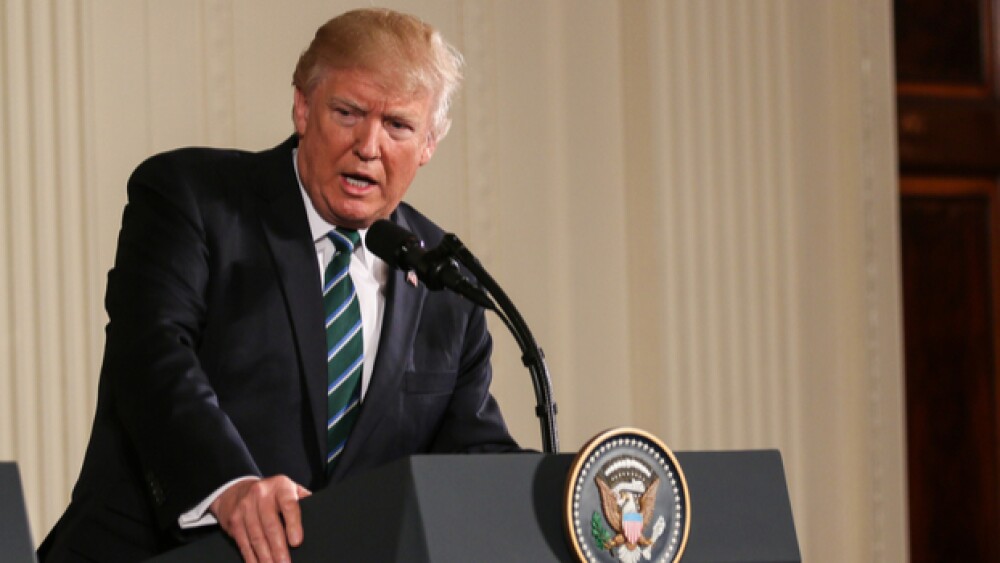On July 18, it was reported by Reuters that Canada is opposed to any U.S. plans to buy Canadian prescription drugs because the country fears it will threaten its own drug supply or raise costs for its own people.
Nicole S Glass / Shutterstock
Although it has been in the works for a while, Department of Health and Human Services Secretary Alex Azar told CNBC today that the Trump administration is working on a proposal that would let U.S. consumers import drugs from Canada.
“I just got off the phone with him,” Azar told CNBC, referring to President Trump. “Working on a plan on how we can import drugs safely and effectively from Canada so the American people get the benefit of the deals that pharma themselves are striking with other countries.”
At this point, the proposal appears to be in the planning stages. On July 18, it was reported by Reuters that Canada is opposed to any U.S. plans to buy Canadian prescription drugs because the country fears it will threaten its own drug supply or raise costs for its own people.
A minimum of 10 U.S. states, including Florida, have passed or proposed legislation that would allow these types of imports, but actual shipments are illegal without federal approval.
An April briefing for Canadian officials stated, “Canada does not support actions that could adversely affect the supply of prescription drugs in Canada and potentially raise costs of prescription drugs for Canadians.” The briefing was prepared by the Canadian foreign ministry to be used by Canadian officials speaking with U.S. officials.
In a follow-up with Canadian ministry officials at Health Canada, the ministry told Reuters they had “made Canada’s position clear” to federal and state officials in the U.S. and was prepared to “take action to ensure Canadians have uninterrupted access to the prescription drugs they need.”
Generally, according to the U.S. Food and Drug Administration (FDA), it is illegal to import drugs from other countries for personal use. The Trump administration has made attempts to increase drug price transparence and lower costs, although it hasn’t made enormous headway.
Earlier in July, the Trump administration withdrew its plan to ban rebates pharma companies pay to pharmacy benefit managers. And that was only three days after a federal judge in Washington, D.C. struck down a rule that would have required pharmaceutical companies disclose the list price of their drugs in television ads.
Senators Chuck Grassley (R-Iowa) and Ron Wyden (D-Ore.) have floated a bill to make changes to Medicare, adding an out-of-pocket maximum for beneficiaries at $3,100 beginning in 2022. It would also penalize biopharma companies if their drug prices rise faster than inflation. The Trump administration supports the bill.
It’s not a popular bill with the biopharma industry, but it’s also facing opposition within the senate. On July 25, the Senate Finance Committee voted 19-9 to advance the bill, but some Republicans who supported it expressed concern they may not back it in a full Senate vote. The biggest point of contention is capping drug prices to the rate of inflation. The bill is generally supported by Democrats, but Wyden has warned that Democrats wouldn’t allow a Senate vote if the Republicans didn’t agree to hold votes on insurance protections for people with preexisting conditions.
Even Senate Republicans often disagree with President Trump on his efforts to lower drug prices. For example, in the vote, 13 of the Senate Finance Committee’s 15 Republicans voted to remove the inflation proposal, although that attempt failed. The primary objection is that it resembles both government interference in private markets and government price controls. Others argue that it isn’t necessary because Medicaid already uses that strategy.
“It’s my view that we should not use this sledgehammer of a universal price control, imported form Medicaid, to deal with that relatively narrow problem and to disrupt a program that’s working very well,” Sen. Patrick Toomey (R-Pa.) stated.
Many of the Republicans also were opposed to a proposal to tie drug prices to those paid in other developed countries. This also failed.
Earlier this month, pharmaceutical executives met with Trump at the White House to voice their opposition to the Grassley-Wyden proposal.





